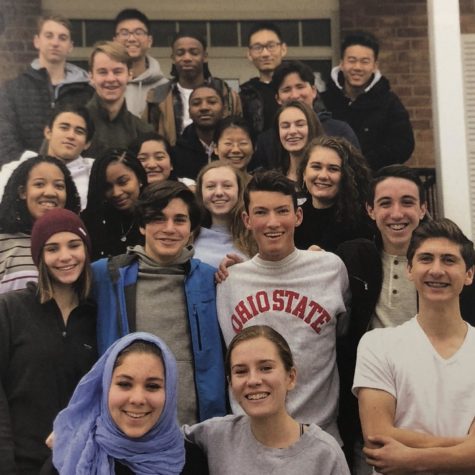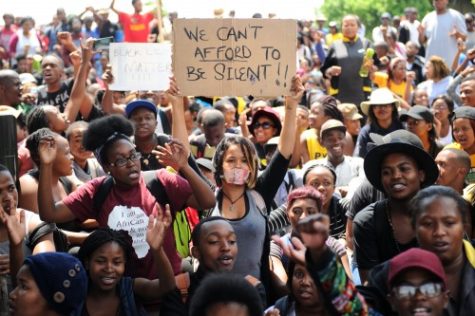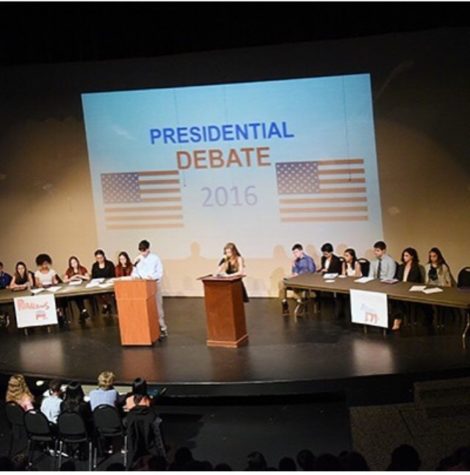Torch Isn’t Doing What You Think They Are!
May 21, 2018
Sandy Spring Friends School takes pride in the plethora of leadership roles available to the student body. The school promotes equality and student initiative to prospective families and parents. Student lead efforts like Our People Our Planet Day, The Pond Party and The Youth Peace Conference are all examples of the school throwing their support behind charismatic students determined to execute their visions, but the most popular example of this would be the student government of the upper school, Torch. Despite the fact that members of Torch are nominated by the student body, chosen by the faculty and that meetings are open to anyone, a lot of students are confused about what Torch actually does. Here’s an attempt to get to the root of the confusion and clear some of the misconceptions about Torch and how it operates.
Torch plays the role of a liaison between the faculty and the student body. This position makes Torch more of a mouthpiece than a “governing” body. Torch does not create or enforce the rules or policies of Sandy Spring Friends School and does not hold any more collective power than any other group of students. When ideas or concerns are submitted to Torch through the comment box or Finalsite, they are added to torch’s agenda and discussed in their meetings, which are generally held on Wednesdays during academic help in Josh Moffatt’s room in Hartshorn. As I mentioned in the previous paragraph, Torch meetings are generally open to anyone who is interested in attending but they are rarely attended by non members. This is a source of frustration for members of Torch because the student body often criticizes Torch for lacking transparency, but nobody ever comes to the meetings.
As a liason, it is the responsibility of Torch to facilitate discussion between the student body and faculty. A common criticism from Torch towards the student body is that the comments are often filled with complaints and that there aren’t enough solutions proposed. To promote self advocacy and productivity, Torch updated their comment form, adding a row for students to write the steps they have taken to resolve their concerns. The problem with this approach was that a lot of students were under the impression that it was Torch’s responsibility to create solutions.
Since these developments, the conflict between Torch and the student body has calmed down. Torch has taken several opportunities to clarify the role they play in the SSFS community and why it is impossible for things to change automatically when people complain to Torch. To create a climate where there is patience and understanding between the student body and the student government it is going to be important for Torch to explain that they are responsible for representing the interests of the student body rather than creating or enforcing the rules.
I encountered a lot of obstacles in the process of writing this article. One of the major obstacles I faced was gaining a variety of perspectives on this topic. I think a lot of people feared that I was writing this article with the intentions of slandering Torch and worried that I would take their words out of context to support this agenda. I have been openly critical of the student government in the past and I have protested some of their decisions but I have never acted without reason. What members of this community often fail to realize is that business is business, and criticism of an organization’s work is not an assessment of the groups members and their value as people. What bothers me even more is that people think that I am petty enough to write an article to shit on an organization that I not only belong to, but has a lot of people I have a great deal of respect for.
I did a couple of interviews that I decided to exclude from this article because I found that people were saying a lot of the same things and their tones and sentiments were changing whenever I would turn the recorder or the camera on. 






Thomas Perich • Jun 11, 2018 at 10:29 pm
Very well said. You are spot on in the regard the Torch is “more of a mouth piece than a ‘governing’ body”, many people assume that like an actual government Torch has power, but that isn’t completely accurate, Torch has influence. The members or torch are selected not for the ability to solve issues but for their leadership and their ability to communicate issues brought to them. This involves talking about the issues in meetings, and to the members of the community that do posses the power that Torch lacks, this is where the influence Torch has comes into play. You are spot on in regard to the fact that Torch can communicate issues and propose solutions, but there is no way for Torch to enforce them.
Breezy • May 22, 2018 at 9:39 pm
Well said in the last paragraph. It’s powerful.